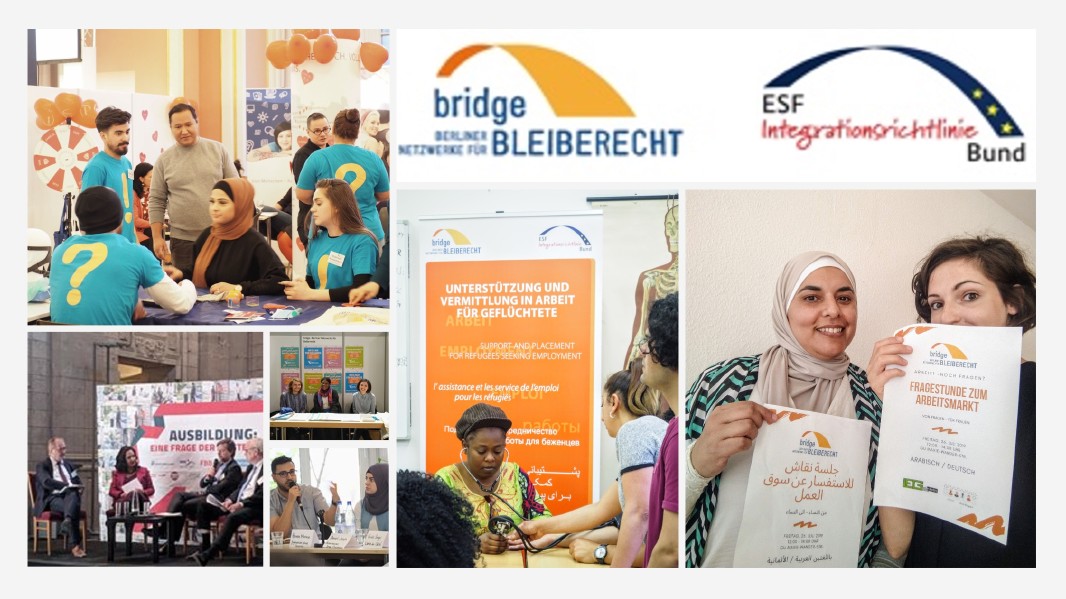Bridge supports people residing in Berlin who are still in their asylum procedure, people with a temporary suspension of deportation or a residence permit on humanitarian grounds Until now their participants were almost: - 40% with residence permit
- 40% during asylum procedure
- 20% with suspension of deportation
- 70% men
- 30% women
bridge has a total of 2200 participants and 13,500 brief consultations (July 2019). Among the participants, the placement rate in internships, training or employment is almost 40%. In addition, there are placements in language courses, qualification measures, school and studies. In addition, bridge holds regular training courses and specialist events and there are publications on the topic of labour market access. Essential for the success of the project are in the first place the number of participants and their placement rate in employment, training or school. But at the same time, good networking and political influence are also considered a success. CHALLENGES & CONSTRAINTS The target group of the project often has difficulties with its resident permit. This means that there is not always (full) access to the labour market. With its integrated legal advice, bridge also wants to support those who initially do not have a work permit. Nevertheless, practical difficulties often arise here. See the following example: In the qualification project at the Paulo Freire vocational school, a person with the legal status “suspension of deportation“ is supported in the field of nursing care and subsequently finds a training place. However, the foreigner authority has issued the person with a ban on employment because he or she has not presented a passport. Even if it is a deficient occupation and a pre-qualification already exists, the person may not start the training. For the bridge project it is important to consider especially those people with residence restrictions, as they are excluded from many other projects and measures. Residence rights are decided at federal level. For this reason, it is only possible to deal with residence law barriers to a very limited extent within the framework of the project. One possibility is to support directly in individual cases with legal advice.
Another option is to influence the Berlin implementation of legal scope via the administration itself. Both ways are possible primarily because the bridge network is embedded in the office of the Comissioner for Integration and Migration of the Berlin Senate. A third way is political lobbying. This can also be used to directly address the legislator. bridge is only able to deal with problems in this way because numerous NGOs are represented in the project. See the following example: In the qualification project at the Paulo Freire vocational school, a person with the legal status “suspension of deportation” is supported in the field of nursing care and subsequently finds a training place. However, the person has a ban on employment because he or she has not presented a passport. Even if it is a deficient occupation and a pre-qualification already exists, the person may not start the training.
| 

